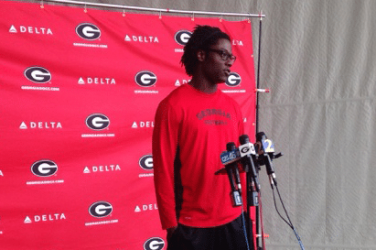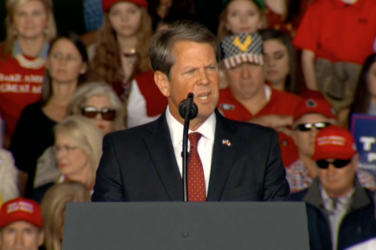By Josie Wall
https://www.youtube.com/watch?v=FgWw9Gg9dIw
Traditionally, college campuses have served as long standing forums for free speech, but recent events have left campuses feeling the strain of speech code limitations. Political protests have sparked large assemblies on school grounds, some turning violent.
Incidents at the University of California at Berkeley, the University of Florida, Middlebury College and others have become examples of a polarized political environment. Some argue the state of free speech on campuses has become prone to either silence or violence, rather than a platform for debate as it once was.
Sonja West of the University of Georgia School of Law, who serves as the Otis Brumby Distinguished Professor of First Amendment Law, said though these violent protesting tactics have sparked around the nation, she has seen signs that the public opinion did not tolerate these approaches. She said, “There has been backlash. While you have a right to speak, you don’t have the right to use violence and you don’t have the right to stop someone else from speaking….There’s starting to be some more public pressure who do engage in inciting violence or silence speakers through out yelling them or interrupting their speech. Those kind of tactics are certainly not getting a lot of sympathy these days.”
Jonathan Peters, another UGA professor specializing in communication law and policy, has studied in these new campus protests arising around the nation. “Campuses are trying to sort out their role in supporting and limiting protest activities on their campuses. Certainly that would be most obvious in the context of protests that turn violent or are likely to turn violent,” he said. “Universities have found themselves in tough spots by playing host to individuals and groups that engage in contemptible and odious speech.”
Peters explained that some universities have creatively tried to prevent such speakers and organizations from coming to campus, even going as far as disinviting some from giving talks. “I think that is the wrong approach to take. I think that however odious and contemptible a person’s speech may be, the university is at its best when it plays host to a variety of views, viewpoints, opinions, offensive and not,” he said.
Matthew Varley, a counseling psychology doctoral student at the University of Georgia, is conducting a university-wide survey he calls “What is the state of campus speech at UGA?” His research was sparked by an incident on his own campus during his undergraduate years at Brown University. A controversial visit from then-New York Police Department Commissioner Ray Kelly in 2013 ended with protests outside and during the speech, forcing the event to be cancelled. “That really struck me. I certainly understood the anger and frustration with him, but to be at a university and just shut it down? To me that seemed like a missed opportunity,” explained Varley.
With an escalating number of these critical incidents, Varley became intrigued by free speech environments on other campuses. He said many cultural critics claim the atmospheres growing on college campuses make it so that people are not able to fully express themselves out of intimidation and being unwittingly labeled into a group. His own survey aims to gage the inner experience of students on UGA’s campus and how willing they may be to speak up or engage in difficult issues.
“I do think that college is an important developmental stage where young people have the opportunity to form a lot of their opinions and change their mind about a lot of things,” explained Varley. “If we’re in a culture or in a climate where people aren’t able to get into that discussion, then I don’t think people’s minds are going to be changed. I don’t think people’s ideas are going to be challenged. I think that some people will unfortunately miss some of the opportunities that they have here as college students to engage with one another in difficult dialogues.”
Though UGA has held protests in light of recent political movements, they have remained peaceful. Peters reminded readers, “If you believe someone is engaging in offensive or contemptible speech, then respond. Counter-speak, plan a protest. And in that protest, allow that person to say his or her piece, and then engage in your own speech. The goal here is not to drown out that other speech as a matter of volume. It is to refute the merit of the ideas that person is expressing. If the ideas are that bad, it shouldn’t take very long to do that.”




